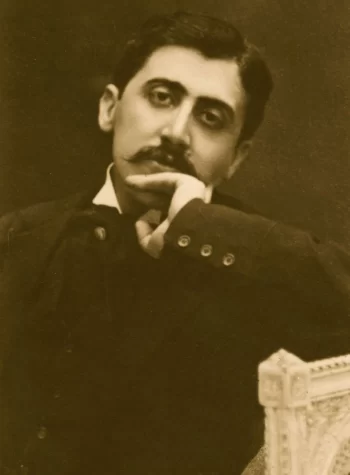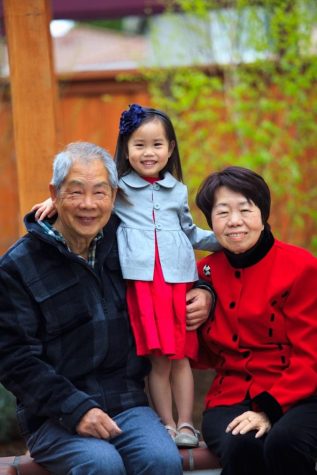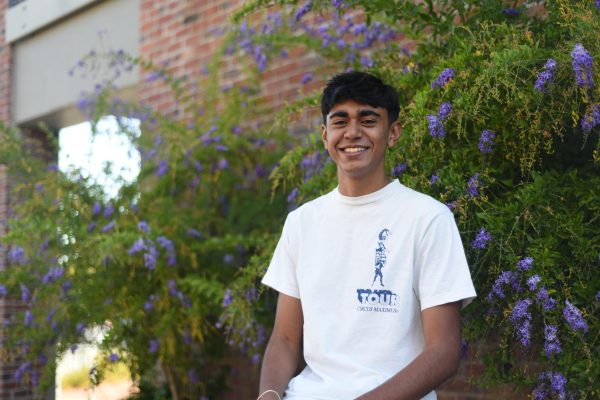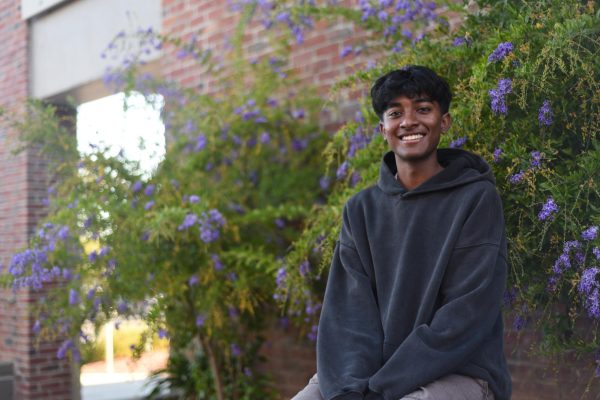Who inspires you?
Delving into MVHS students’ biggest inspirations and role models
April 3, 2023
EE: Role models play a crucial role in shaping our lives, influencing our choices and inspiring us to be like someone. With role models ranging from family members to celebrities, senior Kayla Chang, science department lead Kavita Gupta and freshman Sayuj Masurkar all seek someone to look up to, so they can push themselves to be the best version of themselves.
EE: Who is your biggest inspiration or role model?
KG: My dad [who] was a very principled man who lived very honestly.
SM: Marcel Proust…He’s a French novelist [and] he wrote a novel [called] In Search of Lost Time. His life story was kinda tragic.

KC: I think my biggest inspiration is my grandma.
EE: While Chang and Gupta have spent their entire lives with their role models, Masurkar looked up to a more distant figure.
SM: I was reading a book by Robert Greene, The Laws of Human Nature, and that in itself was a really eye opening book, but hearing that story was like ‘damn, if he can do that, what can I do?’ [If I could meet him] I would just ask him a lot of questions about what he’s learned about humans and human nature as a whole.
EE: Unlike Masurkar, Chang and Gupta have had a multitude of fond memories and recollections with their role models, reflecting on a few significant ones.
KC: Recently, my grandpa passed away. And then I told [my grandma], if [she] ever needed anyone to talk [or] if she ever needed to call, she could reach out to me. And since then we’ve been calling and texting more often. So I think that’s been really impactful, just having her there.
KG: I remember when I was five years old or maybe seven, we were going to pick [up] one of our relatives from the train station and we were running late. My dad said something to me, he said, ‘with means all right, the end must come.’ And that phrase has stuck to me, and I did not understand the full extent of it. So I asked him, ‘What do you mean, papa?’ And he said, ‘Well, right now I’m in a frenzy because I feel I’m driving erratically, but if I were to keep going at this mile and do the right things, follow the traffic rules, I will reach it by this time. If I employ the right means, then my end will be good. So rather than obsessing about the end, focus more on the path and the journey, that was the teaching, that’s my fond memory.
EE: Chang, Gupta and Masurkar can all agree that they have used their role model as a place of inspiration when they found themselves in difficult situations.
KC: This year, I’ve had a lot of struggles within my sport. I’m on Dance team and it’s just been a crazy year. And then my grandma inspires me to keep going, keep trying and she encourages me to do my best and she’s my biggest cheerleader.
KG: My dad’s outlook on life is in everything I do, from my personal life to my professional life, some of the teachings, some of the things that he lived by, he instilled in me. My students benefit from the timeliness, the value of commitment when you commit to something you come through. I’m never late to anything because he would always be on time to places. These are simpler things, but at a deeper level, just acceptance for all — whoever, whatever they come from — lack of judgment.
SM: Well, when I was reading that book, I would read a chapter and then I’d be like, ‘okay, time to do something.’ Because I felt motivated and that book and his story specifically made me feel so much better and just great as a whole person.
EE: They each have someone in their lives that they look up to for inspiration. Motivated by their role models’ life stories and admirable qualities, these individuals aspire to mimic their role models’ defining qualities.

KC: [My grandma has] gone through a lot in life, especially her immigration story and moving to the US and she’s just very resilient, friendly and positive. I have a lot to learn from her. Just her resilience, she went through a lot to get herself here. [my grandparents] immigrated from Vietnam with my family when they were really young, and she was on a boat and pirates came and sunk the boat. She got her family back to shore and made sure they were safe in the US. She built [my family] a nice foundation so my parents could be successful and be here, so that’s something really specific that I really admire.
KG: [His timeliness, commitment and acceptance] just serves me so many times in life, you know, the focus on journey and [to] not get obsessive about that and try your best effort and go with that.
SM: Just [Proust’s] determination because [he] was going through a lot, I believe he was sick and also had a mental illness. Just the fact that he was able to keep up with the French elite and one of the condescending communities at that time it’s really just inspiring.
EE: Upon reflecting on their own role models, all three of them began brainstorming thoughts on the definition of a “role model”. Chang and Gupta share many similarities in their experiences on the importance of having a role model. However, Masurkar had a different take on the topic.
SM: You shouldn’t have someone telling you or showing you how something is supposed to go and how you are supposed to live your life. At the end of the day, it’s your life, [so] you got to motivate yourself.
KC: I think [having a role model] is good, it teaches you who to be. And just having that general inspiration can inspire someone to push themselves farther and achieve more.
KG: Yes, because as we are developing our worldview, our personalities [and] as we are getting to know ourselves more, it’s important to have some kind of a bar, you know, who do you want to be like?
EE: While all three of them have had role models, Masurkar, being in the early stages of his life, felt that he hasn’t had the opportunity to be a role model to someone else, but hopes to eventually be able to share his experiences with others.
SM: Maybe one day but at the moment not exactly because I’m just a high schooler, I shouldn’t have the responsibility of being a role model.
EE: Becoming role models themselves, Chang and Gupta have had the privilege to step into the shoes of their own inspirations and motivate others.
KC: I hope that I’ve been a role model. I teach [dance] in my studio, so I hope that I’m a role model to my students, and also as an upperclassman on [the] dance team I hope that I’ve made an impact on some of the underclassmen.
KG: So there was this student in my class and this was about six years ago. I was recognized as National Geographic’s inaugural Teacher of the Year, meaning when I received that award, it was a big honor. It’s a national recognition and when I received that award, of course, National Geographic did a big thing and they came to my class. And one of my students, she came to me and then I had to go to receive that award for which I needed to miss the Halloween celebration that I did in class. I would fire-breathe and do these exciting things and kids loved it. So I was in two minds. ‘Should I go?’ I didn’t want to leave my students to go because then I wouldn’t be able to celebrate Halloween and do all these fun things. So then, I put the question out to them. Then one girl came up to me and she said, ‘You should go Mrs. Gupta, because you will inspire so many people.’ And I said, ‘Tell me more about it.’ She said, ‘you’re such a good role model for STEM girls’ and I said, ‘Why do you say that? There are so many right?’ And she said something that was so insightful, she said, ‘Yes, there are many role models, but they are removed. You hear about all of these Marie Curies and so many people in STEM, but you don’t interact every day with them. So here you are. I see you spill your coffee, I see you eat your food and be frantic and lose your pen and then I see you receive this award, so that makes me feel that I can do it also.


















